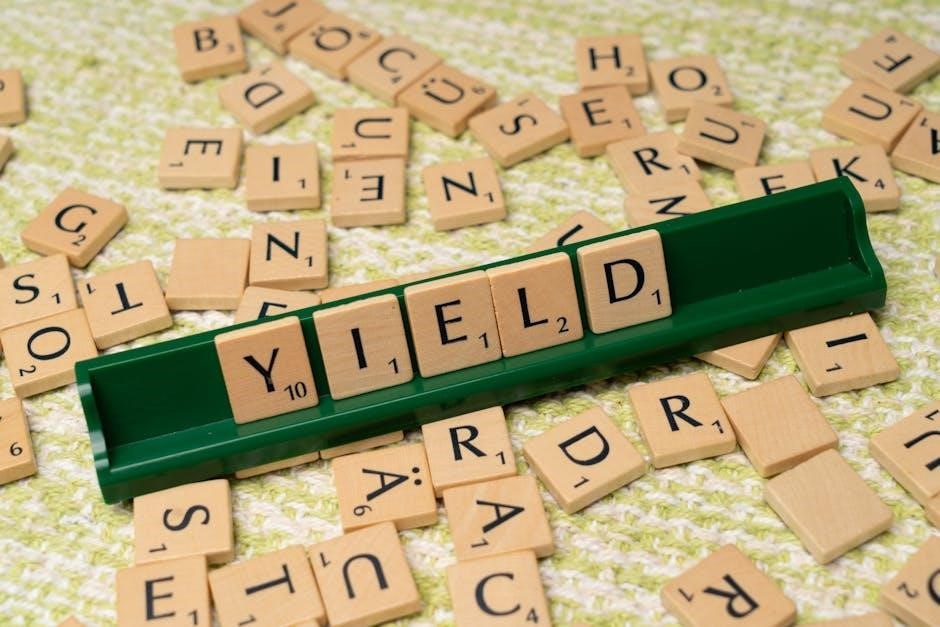A linguistic puzzle PDF is an educational tool designed to enhance cognitive skills and problem-solving abilities through engaging language-based challenges․ It offers exercises in phonetics, morphology, syntax, and cross-linguistic analysis, providing learners with practical opportunities to explore linguistic structures and patterns․ These resources are widely used in schools and competitions like NACLO and UKLO, making them an accessible way to deepen linguistic understanding and critical thinking․
Types of Linguistic Puzzles
Linguistic puzzles are categorized into phonetics, morphology, syntax, and cross-linguistic analysis; They involve decoding patterns, grammar, and word origins, challenging learners to apply linguistic concepts creatively and critically․

- Phonetics/phonology puzzles focus on sound systems․
- Morphological puzzles analyze word structure․
- Syntactic puzzles explore sentence formation․
- Cross-linguistic puzzles compare language structures․
Phonetics and Phonology Puzzles

Phonetics and phonology puzzles focus on the study of sounds and sound systems in languages․ These puzzles often involve identifying and transcribing sounds, recognizing phonological patterns, and applying linguistic rules․ For instance, learners may analyze sound contrasts in languages like Swahili or Russian, decode phonetic transcriptions, or solve problems related to syllable structure and stress patterns․ Such exercises enhance auditory skills, linguistic awareness, and the ability to apply theoretical concepts to practical problems․ They are particularly effective for understanding how sounds function within languages and how they contribute to meaning and communication․
- Identifying phonetic contrasts in unfamiliar languages․
- Transcribing words using the International Phonetic Alphabet (IPA)․
- Solving problems related to phonological rules and sound changes․
Morphological Analysis Puzzles
Morphological analysis puzzles focus on understanding the structure of words and how they are formed from smaller meaningful units called morphemes․ These puzzles often involve identifying prefixes, suffixes, and roots in languages like Swahili or Latvian․ Learners are tasked with breaking down words to uncover their meanings, such as recognizing how suffixes in Russian indicate grammatical case․ These exercises also explore how words relate to each other through shared morphemes, helping to reveal linguistic patterns and rules․ By solving these puzzles, individuals develop a deeper understanding of how languages construct meaning and how words can be systematically analyzed․
- Identifying prefixes, suffixes, and roots in unfamiliar languages․
- Decoding word meanings through morphological decomposition․
- Reconstructing word families based on shared morphemes․
Syntactic Structure Puzzles
Syntactic structure puzzles challenge learners to analyze how sentences are constructed and how words function within them․ These puzzles often involve identifying word order patterns, phrase structures, and grammatical roles such as subject, object, and verb․ By examining sentences in languages like Russian or Portuguese, participants must infer syntactic rules and relationships․ Tasks include determining how word order affects meaning or identifying grammatical markers that signal specific roles․ These exercises enhance understanding of universal syntactic principles and language-specific structures, fostering critical thinking and problem-solving skills essential for linguistic analysis and computational linguistics․
- Analyzing word order and phrase structure․
- Identifying grammatical roles in sentences․
- Inferring syntactic rules from unfamiliar languages․
Linguistic Puzzles in Competitions
Linguistic puzzles are central to competitions like NACLO and UKLO, challenging participants to solve complex language-based problems․ These events test problem-solving, analytical thinking, and linguistic knowledge, fostering cognitive growth and competition․
- NACLO: Focuses on computational linguistics and cross-linguistic analysis․
- UKLO: Emphasizes syntactic and semantic challenges in diverse languages․
North American Computational Linguistics Open Competition (NACLO)
The North American Computational Linguistics Open Competition (NACLO) is an annual event that challenges students to solve complex linguistic puzzles․ Featuring problems in phonetics, morphology, syntax, and cross-linguistic analysis, NACLO requires critical thinking and problem-solving skills․ Open to secondary school and undergraduate students, the competition aims to foster interest in computational linguistics and language analysis․ Participants engage with data from diverse languages, decoding patterns and underlying structures․ NACLO also provides practice materials and past problems, making it a valuable resource for honing linguistic skills․ The competition is a gateway for students to explore the fascinating world of language and computation, preparing them for advanced studies in linguistics and related fields․
United Kingdom Linguistics Olympiad (UKLO)
The United Kingdom Linguistics Olympiad (UKLO) is a prestigious competition that challenges students to solve linguistic puzzles involving diverse languages․ It tests skills in phonetics, morphology, syntax, and semantic analysis, requiring participants to decode patterns and rules from linguistic data․ UKLO problems often involve identifying grammatical structures, word origins, and cross-linguistic relationships․ The competition is open to students of all ages and linguistic backgrounds, fostering critical thinking and language awareness․ Past papers and solutions are widely used as educational resources, helping students and educators practice linguistic analysis․ Additionally, UKLO puzzles have been studied to assess the performance of large language models (LLMs) in solving school-level linguistic challenges, making them a valuable tool for both learners and researchers․

Practicing with Linguistic Puzzle PDFs
Linguistic puzzle PDFs offer diverse exercises in phonetics, morphology, syntax, and cross-linguistic analysis․ They provide NACLO and UKLO practice materials, books, and specific linguistic challenges for all skill levels․

NACLO Practice Materials
NACLO practice materials are essential resources for students preparing for the North American Computational Linguistics Open Competition․ These PDFs contain past competition problems, sample solutions, and exercises tailored to improve linguistic analysis skills․ They cover a wide range of languages, including Swahili, Russian, and Latvian, and focus on phonetics, morphology, and syntax․ The materials are designed to help participants understand underlying linguistic rules and structures, making them ideal for both beginners and advanced learners․ Additionally, they provide insights into cross-linguistic patterns and deductive reasoning techniques․
By solving these puzzles, students can enhance their problem-solving abilities and gain a deeper understanding of linguistic concepts․ The materials are available on the official NACLO website and other educational platforms, offering a comprehensive toolkit for competitive preparation․
UKLO Practice Materials
UKLO practice materials are tailored to help students prepare for the United Kingdom Linguistics Olympiad, offering a variety of linguistic puzzles and exercises․ These resources include past competition papers, language-specific exercises, and cross-linguistic analysis tasks․ The materials focus on phonetics, morphology, syntax, and semantics, providing students with practical challenges to enhance their linguistic understanding․ Many puzzles involve decoding unfamiliar languages, such as Swahili or Russian, and identifying grammatical patterns․ Additionally, the materials often include solutions and explanations, allowing learners to review and improve their problem-solving strategies․ UKLO practice materials are widely available online, making them an accessible tool for developing critical thinking and linguistic skills․
General Linguistic Puzzle Exercises
General linguistic puzzle exercises are designed to challenge learners with a wide range of language-based tasks, covering phonetics, morphology, syntax, and cross-linguistic analysis․ These exercises often involve decoding unfamiliar languages, identifying patterns, and solving grammatical puzzles․ Many resources include exercises that focus on specific linguistic concepts, such as word formation rules or sound systems, while others incorporate broader problem-solving techniques․ Designed for various skill levels, these exercises cater to both beginners and advanced learners․ They are typically available as downloadable PDFs, offering flexibility for self-study or classroom use․ By engaging with real-world linguistic data, learners can develop a deeper understanding of language structures and improve their analytical skills․ These exercises are an excellent way to enhance linguistic knowledge and critical thinking abilities․

Educational Value of Linguistic Puzzles
Linguistic puzzles enhance cognitive skills, fostering analytical thinking and problem-solving abilities․ They provide practical insights into language structures, improving understanding of phonetics, morphology, and syntax․ These tools are invaluable for learners, promoting critical thinking and linguistic awareness while preparing students for advanced linguistic studies and competitions․ Schools increasingly adopt these resources to engage students in interactive learning, making complex concepts accessible and fun․ By solving puzzles, learners gain a deeper appreciation for language diversity and develop skills essential for academic and professional success․ Linguistic puzzles are a powerful educational resource for learners of all ages and skill levels․
Improving Cognitive Skills
Linguistic puzzles are renowned for enhancing problem-solving and analytical thinking abilities․ By engaging with these challenges, individuals develop critical reasoning and pattern recognition skills, essential for understanding complex linguistic structures․ Solving puzzles requires attention to detail, memory retention, and logical deduction, all of which contribute to improved cognitive function․ These exercises also foster creativity and lateral thinking, as participants often need to decode unfamiliar languages or identify morphological patterns․ Regular practice with linguistic puzzles can lead to enhanced academic performance and better decision-making skills, making them a valuable tool for both students and lifelong learners seeking to sharpen their mental acuity․
Understanding Linguistic Concepts
Linguistic puzzle PDFs are designed to deepen the understanding of core linguistic concepts through interactive and engaging exercises․ These puzzles often focus on phonetics, phonology, morphology, syntax, and cross-linguistic analysis, allowing learners to explore the underlying rules and structures of languages․ By solving these challenges, individuals gain insights into how languages operate, including sound patterns, word formations, and sentence constructions․ Such exercises also encourage the identification of linguistic universals and diversity across languages․ This hands-on approach to learning makes abstract concepts more tangible, helping learners to apply theoretical knowledge in practical problem-solving scenarios and fostering a greater appreciation for the complexity of human language․

Solving Strategies for Linguistic Puzzles
Effective strategies include deductive reasoning, pattern recognition, and cross-linguistic comparisons․ Practicing with diverse language data and using large language models (LLMs) can enhance problem-solving efficiency and accuracy․
Deductive Reasoning and Pattern Recognition
Deductive reasoning and pattern recognition are cornerstone strategies for solving linguistic puzzles․ By analyzing given data, such as phonetic patterns, morphological structures, or syntactic arrangements, learners can identify underlying rules․ For instance, in phonetics, recognizing sound shifts or stress patterns helps decode unfamiliar languages․ Similarly, morphological puzzles often involve identifying prefixes, suffixes, or root words, which require sharp observational skills․ Pattern recognition enhances problem-solving efficiency, as repeated exposure to linguistic data trains the mind to spot recurring features․ These skills are particularly vital in competitions like NACLO and UKLO, where timed problem-solving demands quick and accurate deductions․ Regular practice with linguistic puzzle PDFs refines these abilities, making them indispensable tools for linguistic analysis․
Cross-Linguistic Analysis
Cross-linguistic analysis is a powerful approach in solving linguistic puzzles, involving the comparison of structural patterns across different languages․ By examining phonetic, morphological, or syntactic features in diverse languages, learners can uncover universal principles and language-specific traits․ For example, identifying similar sound shifts in Swahili and Russian or comparing word formation processes in Latvian and Portuguese can reveal underlying linguistic rules․ This method enhances understanding of how languages encode meaning and highlights the diversity of human communication․ Cross-linguistic analysis also sharpens cognitive abilities, as it requires learners to synthesize information from multiple languages and draw meaningful conclusions․ Regular practice with linguistic puzzle PDFs strengthens this skill, making it invaluable for linguistic exploration and problem-solving․
Using Large Language Models (LLMs) for Assistance
Large Language Models (LLMs) are increasingly being explored as tools to assist in solving linguistic puzzles․ These models can analyze patterns, generate hypotheses, and even provide explanations for complex linguistic phenomena․ For example, LLMs can help identify phonetic rules, morphological structures, or syntactic patterns by processing large datasets and cross-referencing linguistic examples․ They also enable learners to test their hypotheses and refine their solutions․ While LLMs are not a replacement for critical thinking, they serve as valuable resources for practicing linguistic analysis and gaining insights into diverse languages․ Their ability to process and decode linguistic data makes them a powerful aid for both beginners and advanced problem-solvers․
Resources for Linguistic Puzzle PDFs
Linguistic puzzle PDFs are widely available online, offering diverse exercises for learners․ Websites like NACLO and UKLO provide practice materials, while general linguistic exercises cater to all skill levels․
Recommended Websites for Download
Several websites offer high-quality linguistic puzzle PDFs for download․ The official NACLO and UKLO websites provide past competition materials, including problems and solutions․ Additionally, resources like the Princeton Linguistics Challenge and Linguistics Challenge websites feature diverse linguistic puzzles․ General linguistic puzzle PDFs are also available on platforms like Linguistics Society of America and educational blogs․ These resources cater to both beginners and advanced learners, offering exercises in phonetics, morphology, syntax, and cross-linguistic analysis․ They are ideal for students, educators, and enthusiasts seeking to improve their linguistic skills through engaging and challenging problems․
Books and Publications
Several books and publications offer linguistic puzzle PDFs and related exercises․ Notable titles include The Crossword Century: 100 Years of Witty Wordplay, Ingenious Puzzles, and Linguistic Mischief by Connor, which explores the history of crosswords and linguistic challenges․ Additionally, The Language Lovers Puzzle Book provides a variety of word-based puzzles and linguistic games․ These resources are available as downloadable PDFs and cater to both casual learners and advanced linguists․ Many academic publications also include linguistic puzzle exercises, focusing on areas like phonetics, morphology, and syntax․ These books are excellent for educators and enthusiasts seeking comprehensive linguistic puzzle materials for practice or teaching purposes․
